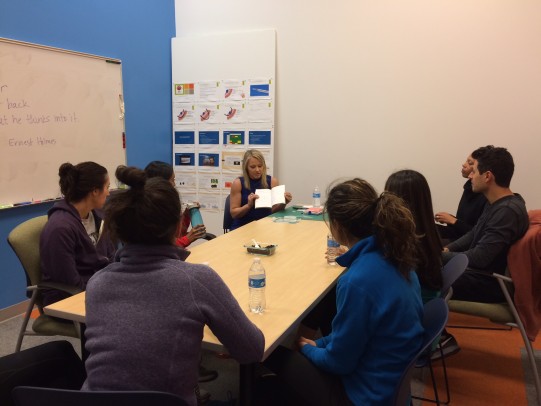Feeling stressed?

Michelle Flowers, a College of Medicine graduate, speaks with residents Dec. 3 about strategies for avoiding burnout.
The otolaryngology and urology departments hosted an event for residents Dec. 3 to help them better avoid burnout. The departments invited Michelle Flowers, a College of Medicine graduate, to speak about strategies for managing stress. Flowers specializes in psychiatry and is an active member of the American Academy of Child and Adolescent Psychiatry. For those who couldn’t attend, Flowers took the time to answer questions about stress and clear up common misconceptions.
Why is it important to learn about ways to avoid stress and burnout?
We know that there are very effective strategies to help people improve their levels of life satisfaction and happiness even in stressful situations.
On that note, what are some strategies to help?
Mindfulness practices can be very helpful in managing stress and improving concentration. Many of the people I work with use apps like headspace and calm. Sleep is very important along with taking care of other basics like exercise and a healthy, balanced diet.
Is there anyway to avoid stress altogether, or is some stress natural?
Stress is very natural and is often a sign that we are invested in what we are doing. Stress itself is not bad. People who see stress as a challenge and use it as an opportunity for self-actualization tend to be much happier than those who see stress as something that happens to them that they have no control over.
Do you see any correlation between technology distractions and stress?
There is no question that most of us are trying to do too many things at one time. The brain simply doesn’t multitask well and often, students end up stressed because they are not managing their time and distractions well.
Ideally, how should students prepare for stressful times like finals?
Strategies are different for each individual. Think about the times when you have come through a stressful situation in the past. What did you do that worked? What did you do that needed improvement? Often, we already know what we need to do. An app like chains.cc can help students develop productive habits by tracking progress.
